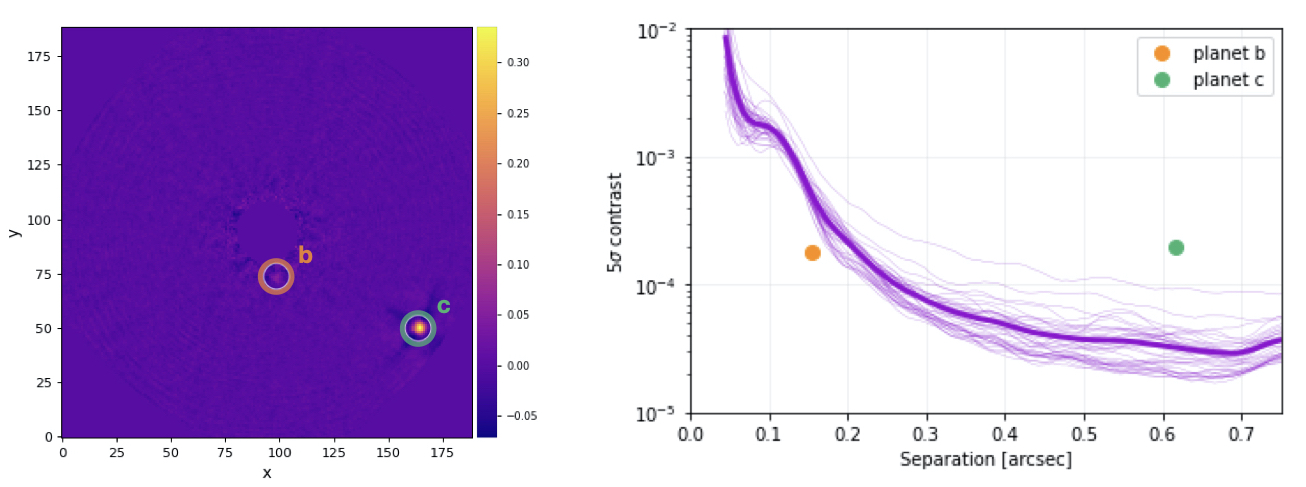Results of PCA-NEGFC (baseline) on the training set
The images below show the baseline results on the sphere0 training data set:


Current results of the Phase 2 (leaderboard)
The table below shows the current algorithms submitted on the EvalAI platform, with the corresponding distance, used as a metric for comparison.
| Algorithm Name ID | Astrometry | Spectrophotometry |
|---|---|---|
| VIP-PCA | 0.126 | 24.97 |
| ANDROMEDA | 3.944 | 304.88 |
| RSM | 0.396 | 52.18 |
| MC | 0.223 | 37.73 |
Publication of the metrics used for the Phase 2
After setting the second phase of the Exoplanet Imaging Data Challenge, we gathered the description of the second phase, the challenge design, the data set available and metrics used to make the comparison in an SPIE conference proceeding. This proceeding is the result of an oral contribution presented at SPIE Astronomical Telescope + Instrumentation taking place from the 17h to the 22th of July 2022 in Montréal (Canada).
You can find the SPIE 2022 publication here (arXiv version).
All members of the Exoplanet Imaging Data Challenge Phase 2 working group are co-authors.
Publication of the comparison of the Phase 2
After the deadline set on 31/05/2024, we compiled the results and published the comparision in an SPIE conference proceeding is the result of an invited oral contribution presented at SPIE Astronomical Telescope + Instrumentation taking place from the 16th to the 21st of June 2024 in Yokohama (Japan).
You can find the SPIE 2024 publication here (arXiv version).
All participants to the Exoplanet Imaging Data Challenge Phase 2 are co-authors.